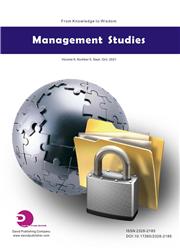Exploring the Influencing Factors of FDI in China’s Internal Regions: Evidence From Taiwan
引用次数: 0
Abstract
This study aims to explore the influencing factors of the location determinants of Taiwan’s foreign direct investments (FDIs) in China’s internal regions. This study proposes three models to examine the influencing factors of Taiwan’s FDIs in China by combining the location advantages of the host country, the economy and politics of the home country, and network relationship in bilateral and regional trade agreements: First, analyze the location distribution of Taiwan’s FDIs in China’s six regions; Second, analyze the location determinants of Taiwan’s main sectors’ (manufacturing and service) FDIs in China; Third, analyze the location determinants of Taiwan’s high-tech industries’ FDIs in China’s six regions. The estimated results show that bilateral trade agreement seems to have positive effects on Taiwan’s FDIs in China, while regional trade agreement seems to have negative effects. In Taiwan’s political form, the ruling party with characteristics of political defense against China seems to have negative effects on most of Taiwan’s industries (except manufacturing) and the overall FDIs in China. In terms of China’s relevant economic factors, the main determinants of Taiwan’s high-tech industries’ FDIs in the major regions of Eastern and South Central of China are infrastructure and high-level human capital resources. China’s GDP growth and increase in unit labor cost have negative effects on FDIs in most regions of China. This implies that the advantage of low wages in China Factory may gradually decline. This study provides some references and implications for future research and policy makers for the analysis of relevant influencing factors of FDI. and distribution of FDIs by combining the influencing factors of the economy, politics (political party alternations in the presidential election) and industries’ characteristics of the home country, network relationships (ECFA, RCEP), and the host country related economic factors. This study proposes three models to explore the influencing factor of Taiwan’s FDIs in China’s internal regions: First, analyze the location distribution (China’s six regions) of the longer term (1991-2017), total amount of FDIs in China. Second, analyze the location determinants of Taiwan’s main sectors’ FDIs in China. Third, analyze the location determinants of Taiwan’s high-tech industries’ FDIs in China’s six regions. Estimation results indicate that bilateral trade agreement (ECFA) seems to have positive effects on Taiwan’s FDIs in China, while regional trade agreement (RCEP) seems to have negative effects. In Taiwan’s political form, the ruling parties (PA 1 and PA 3 ) with defensive political characteristics against China seem to have negative effects on most of Taiwan’s industries (except manufacturing) and the overall FDIs in China. In terms of China’s relevant economic factors, the main determinants of Taiwan’s high-tech industries’ FDIs in China’s major regions of Eastern and South Central are infrastructure and high-level human capital resources. China’s GDP growth and the increase in unit labor cost have negative effects on FDIs in most of China’s regions. This implies that the advantage of low wages in China Factory may gradually decline. Previous FDI studies less attention to the analysis of the political dynamics of the home country. This中国内地FDI影响因素探讨——来自台湾的证据
本研究旨在探讨台湾外商直接投资在中国内部地区的区位决定因素。本研究结合东道国区位优势、母国经济政治、双边和区域贸易协定中的网络关系,提出了三个模型来考察台湾外资在中国的影响因素:首先,分析台湾外资在中国六个区域的区位分布;第二,分析台湾主要产业(制造业和服务业)外国直接投资在中国的区位决定因素;第三,分析台湾高新技术产业在中国六个地区直接投资的区位决定因素。估计结果表明,双边贸易协定对台湾在华外资企业有正向影响,而区域贸易协定则有负向影响。在台湾的政治形态中,具有政治防御中国特色的执政党似乎对台湾的大部分工业(制造业除外)和中国的整体外国直接投资产生了负面影响。就中国的相关经济因素而言,台湾高新技术产业在中国东部和中南部主要地区的外国直接投资的主要决定因素是基础设施和高水平的人力资本资源。中国的GDP增长和单位劳动力成本的增加对中国大多数地区的外国直接投资产生了负面影响。这意味着中国工厂低工资的优势可能会逐渐下降。本研究为未来的研究和政策制定者分析FDI的相关影响因素提供了一些参考和启示。通过结合母国的经济、政治(总统选举中的政党更替)和行业特征、网络关系(ECFA、RCEP)以及东道国相关经济因素的影响因素,确定外国直接投资的分布。本研究提出了三个模型来探讨台湾FDI在中国内部地区的影响因素:首先,分析了长期(1991-2017)的区位分布(中国六个地区),中国FDI总量。其次,分析台湾主要产业外国直接投资在中国的区位决定因素。第三,分析台湾高新技术产业在中国六个地区直接投资的区位决定因素。估计结果表明,双边贸易协定(ECFA)对台湾在华外国直接投资具有正向影响,而区域贸易协定(RCEP)则具有负向影响。在台湾的政治形态中,对中国具有防御性政治特征的执政党(PA 1和PA 3)似乎对台湾的大部分工业(制造业除外)和中国的整体外国直接投资产生了负面影响。就中国的相关经济因素而言,台湾高新技术产业在中国东部和中南部主要地区的外国直接投资的主要决定因素是基础设施和高水平的人力资本资源。中国的GDP增长和单位劳动力成本的增加对中国大部分地区的外国直接投资产生了负面影响。这意味着中国工厂低工资的优势可能会逐渐下降。以往的外国直接投资研究较少关注对母国政治动态的分析。这
本文章由计算机程序翻译,如有差异,请以英文原文为准。
求助全文
约1分钟内获得全文
求助全文

 求助内容:
求助内容: 应助结果提醒方式:
应助结果提醒方式:


